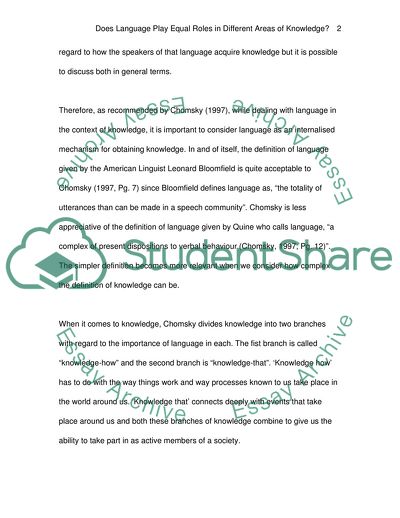Cite this document
(Role of Language in Different Areas of Knowledge Essay, n.d.)
Role of Language in Different Areas of Knowledge Essay. https://studentshare.org/social-science/1711569-does-language-play-equal-roles-of-importance-in-different-areas-of-knowledge
Role of Language in Different Areas of Knowledge Essay. https://studentshare.org/social-science/1711569-does-language-play-equal-roles-of-importance-in-different-areas-of-knowledge
(Role of Language in Different Areas of Knowledge Essay)
Role of Language in Different Areas of Knowledge Essay. https://studentshare.org/social-science/1711569-does-language-play-equal-roles-of-importance-in-different-areas-of-knowledge.
Role of Language in Different Areas of Knowledge Essay. https://studentshare.org/social-science/1711569-does-language-play-equal-roles-of-importance-in-different-areas-of-knowledge.
“Role of Language in Different Areas of Knowledge Essay”. https://studentshare.org/social-science/1711569-does-language-play-equal-roles-of-importance-in-different-areas-of-knowledge.


